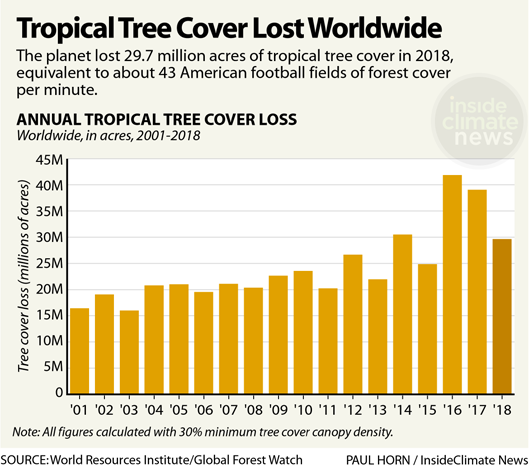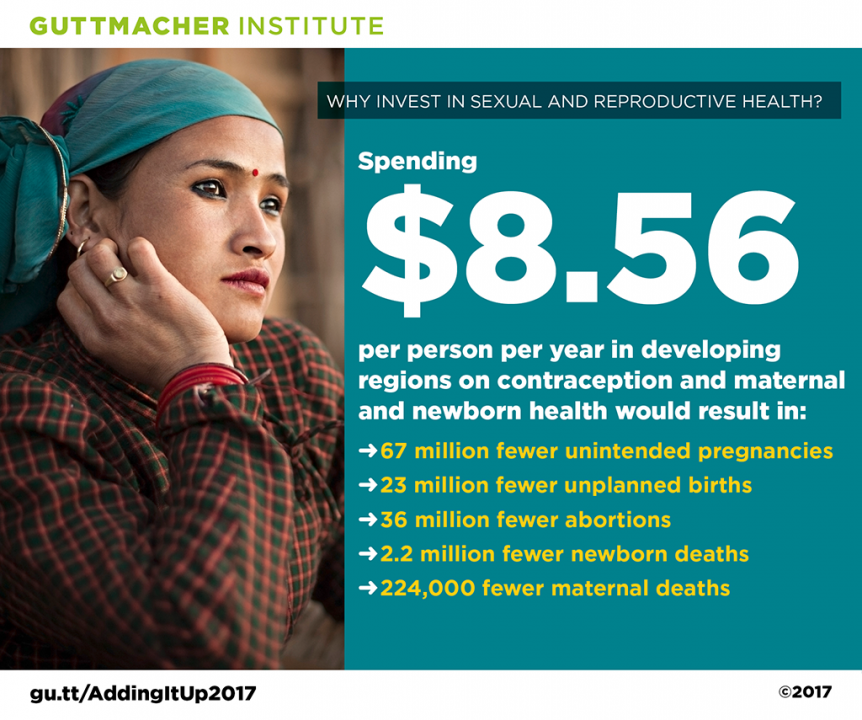Planting Trees Isn’t Enough: We Also Need Family Planning for a Thriving World
Dec 23rd, 2019 | By admin | Category: Energy and Carbon EmissionsBy Suzanne York.
Green is in, and trees are all the rage as a key (and obvious) solution to climate change:
- India planted 220 million trees in one day;
- Ethiopia planted more than 350 million trees in 12 hours;
- China has plans to plant an area of forest as large as Ireland every year.
Even corporations are joining in – shoe company Timberland, by partnering with nonprofit groups, aims to plant 50 million trees in the next five years.
Respecting Trees
It’s an encouraging theme, one of communities coming together to revitalize forests and fight climate change. And many scientists say planting a trillion trees globally could be the single most effective way to fight climate change. According to the World Resources Institute, approximately 8 percent of global carbon emissions currently come from tree cover loss in tropical forests, averaging 4.8 gigatons per year.
In 2017, 39 million acres of tree cover was lost – the equivalent to around 40 football fields every minute, or an area roughly the size of New Zealand’s South Island.
Benefits of reforestation efforts include reversing biodiversity loss and increasing wildlife habitats, and regarding climate change, more trees will provide carbon sinks.
Tree planting is a wonderful, often feel-good effort with big pay-offs for the planet. But with forest ecosystems burning from the Amazon to Siberia to Indonesia, time is of the essence. Add in overdevelopment, industrial agriculture and extractive industries such as mining, and our backs are against the wall. We’d be better off if we simply left trees alone in the first place. Youth in Mumbai are trying to make this point, protesting to save a wooded area known as the city’s “green lung.” One activist told Reuters, “We’re not saying, don’t cut a single tree; we’re only saying don’t needlessly cut trees because there simply aren’t enough trees.”
Even a recent report by the Intergovernmental Panel on Climate Change (IPCC) has said that planting trees isn’t enough. Saving peatlands, for example, is critically important for storing carbon.
Going After the Low-Hanging Fruit
What if, in addition to leaving trees to stand and reforestation, the world focused on reproductive health and meeting the unmet need for family planning? This is, after all, often referred to as ‘low-hanging fruit’ – something that is wanted, we know how to do it, and is relatively inexpensive, in the scheme of things.
In developing countries, an estimated 214 million married women want to avoid pregnancy but are not using a modern contraceptive method. Women with an unmet need for modern contraception account for 84% of all unintended pregnancies in developing regions. Addressing this unmet need via investments in reproductive health and rights empowers women to make the best choices in all aspects of their lives, which will help not only people, but the global environment as well.
Current world population stands at 7.7 billion people and growing, with the UN median projection for 2050 to be nearly 10 billion people on Earth.
Just imagine if countries initiated handing out millions of condoms like they do with planting trees?
Family planning, women’s rights and trees are all connected to climate change. Take, for example, the country of Niger. Climate change is – and will – have a devastating affect on Niger, especially if its population continues to grow rapidly. Increasing temperatures, projected to rise 7-10 degrees Fahrenheit by 2050, are leading to food shortages, unpredictable weather patterns, increased food insecurity, and migration. The Sahara Desert comprises 80 percent of land in Niger, where most people live as subsistence farmers.
Niger has the highest birth rate in the world, and its population is predicted to nearly triple by 2050, from 23 million to 65 million. Yet fewer than one in five married women use contraception. And women here, as in most places, are on the frontlines of environmental degradation and climate change, bearing responsibility for growing crops, fetching water, and putting their lives at risk to get resources to support their families in the face of droughts, floods and rising temperatures.
Organizations such as The OASIS Initiative view addressing family planning needs as a key solution, along with ending child marriage, keeping girls in school, and empowering women with skills to adapt to a changing climate. One way OASIS does this is through its Safe Spaces Clubs, which are mentored groups of young girls that help delay marriage by keeping girls in school.
The Great Green Wall
Given increasing encroachment of the Sahara Desert, tree planting in Niger may not be all that viable at the present time. But putting that type of effort into supporting family planning, girls’ education and women’s reproductive health and rights would make a huge difference in the country. That’s not to say that reforestation isn’t crucial, but getting a grip on Niger’s rapid population growth is a needed first step.
In fact, Niger is part of the Great Green Wall project, an effort to cope with climate impacts and increasing desertification by building a wall of trees across the Sahel region. The aim is to plant a barrier of trees in an effort to halt desertification and restore currently degraded land in the Sahel countries by 2030.
Getting to a ‘sustainable planet’ comes down to reforestation and providing contraception services, amongst other critical environmental and human rights endeavors. It really is about connecting conservation with health, so communities can be resilient and co-exist with a thriving natural world. We can start by planting millions of trees together with handing out millions of condoms.
Suzanne York is Director of Transition Earth.




![[image via Pacific Southwest Region 5, Flickr/Creative Commons]](http://populationgrowth.org/wp-content/uploads/2019/12/tree-planting.jpg)